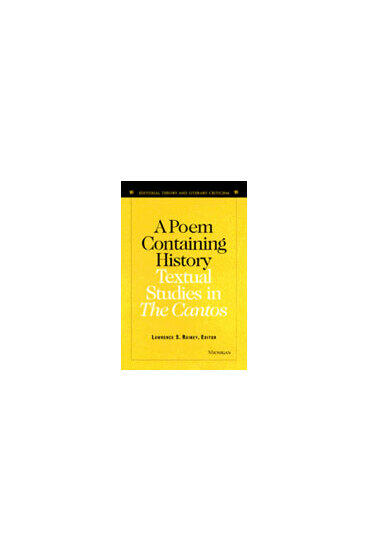A Poem Containing History
Textual Studies in The Cantos
A suggestive survey of new approaches to a twentieth-century classic
Description
No poet of the twentieth century has aroused more controversy than Ezra Pound, and no work by him has seemed more important or more problematic than The Cantos. A Poem Containing History offers nine new essays that examine Pound's major poem from a historical and contextual perspective, in which the work's textual development is brought to center stage. The result is a significant reconsideration not just of Pound's achievement, but of modernist poetics and its relations with history.
The contributors, all major scholars, examine The Cantos from their beginnings in the late 1910s to their inconclusive ending with Pound's death in 1972. Together the essays reconstruct the many contexts in which Pound lived and wrote, and how these affected the evolution of his most important work. Several essays offer comprehensive surveys of the text's publication history, while most examine the development of particular groups of cantos that were produced in succeeding decades.
Repeatedly the essays show that Pound's poem was an unstable work in process, one that readily accommodated input from a variety of agents other than Pound himself, and one that may ultimately have escaped his control altogether.
This book will appeal to readers interested in modern poetry and twentieth-century history. All the essays are written in a style that is clear and free of jargon.
Lawrence S. Rainey is Associate Professor of English, Yale University.

